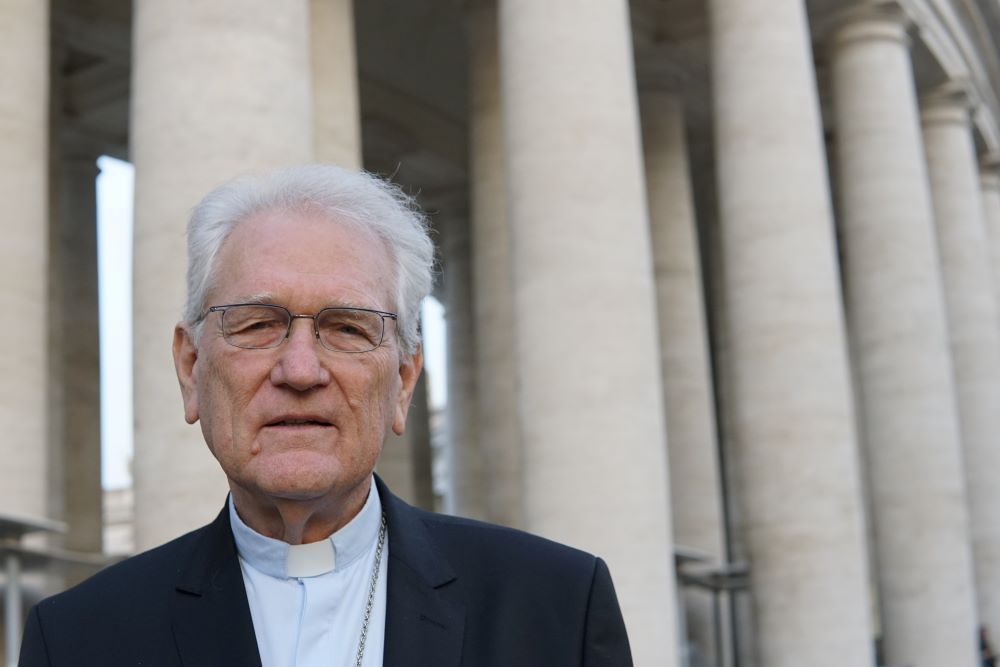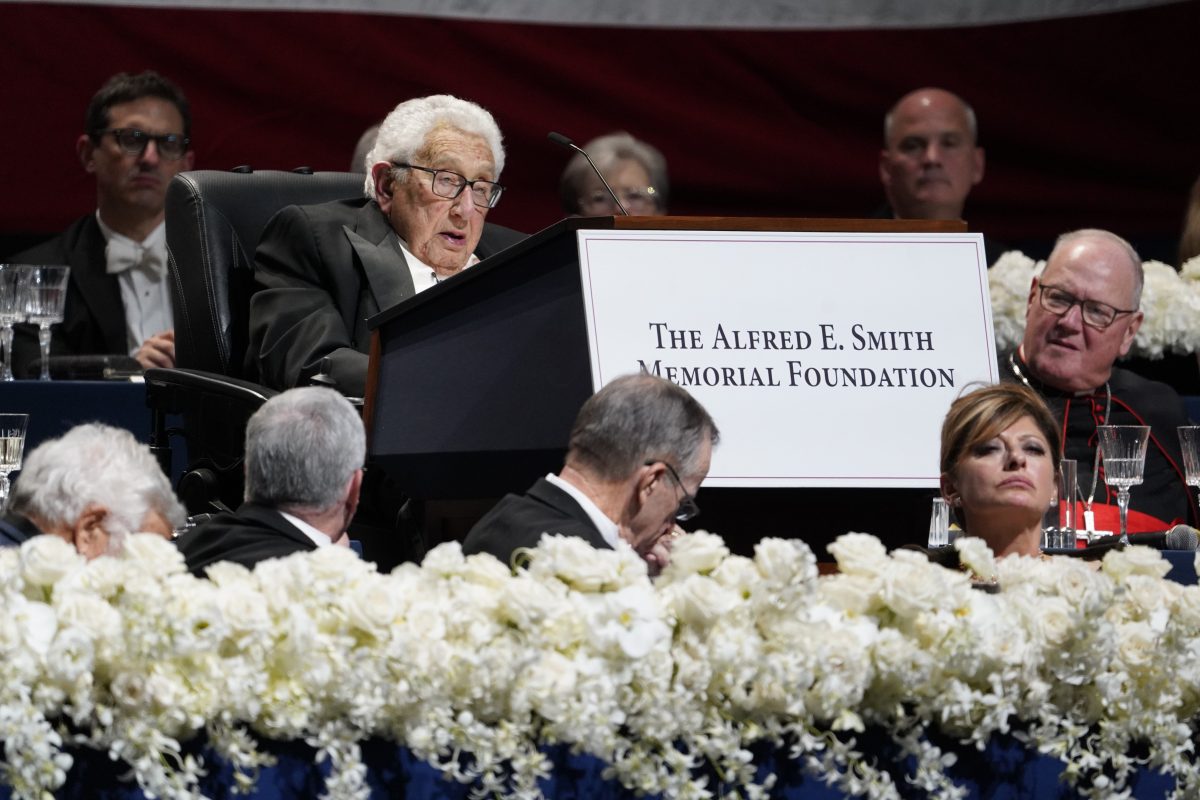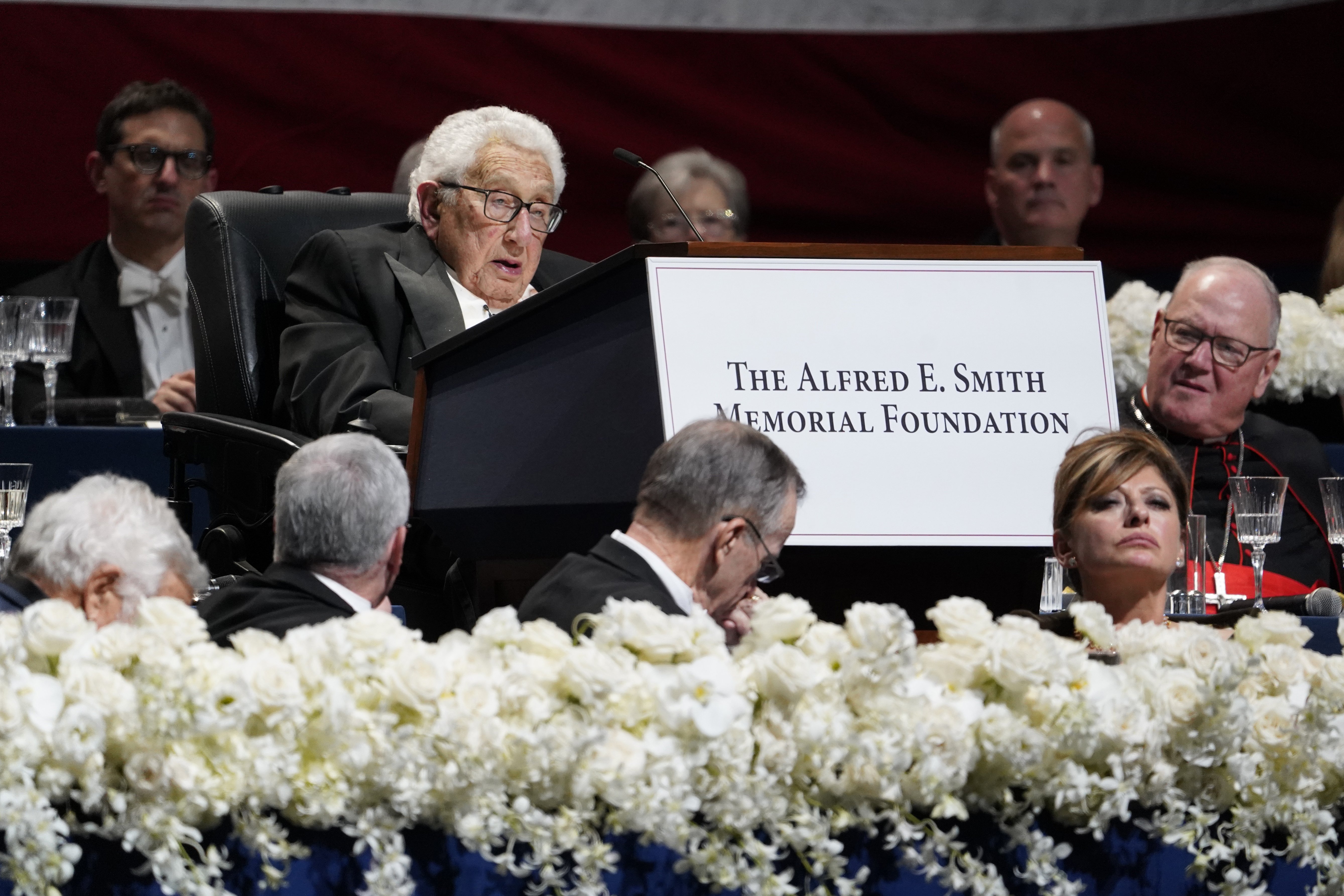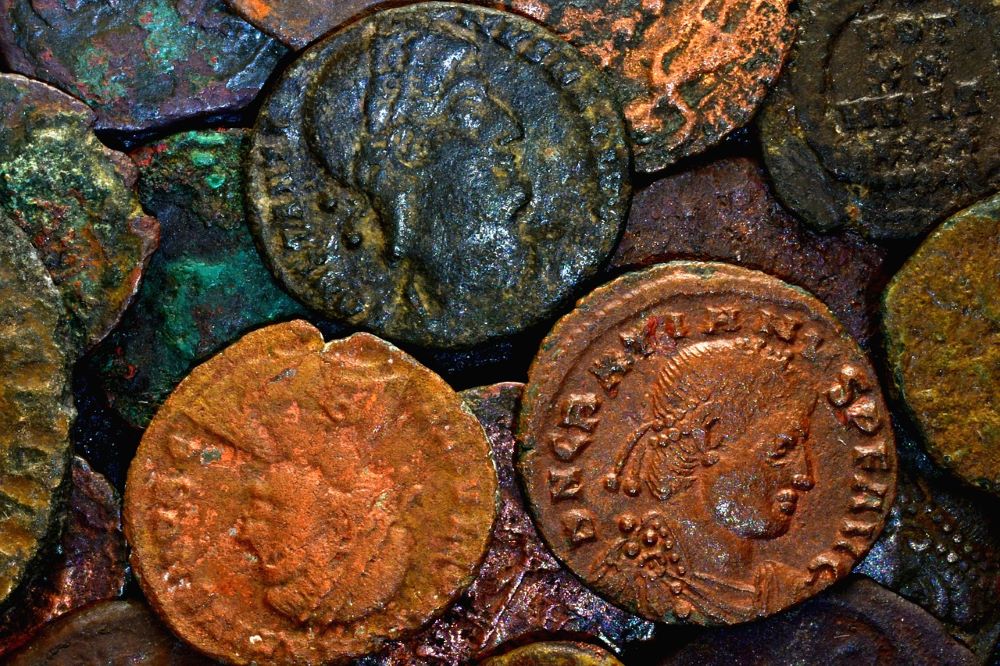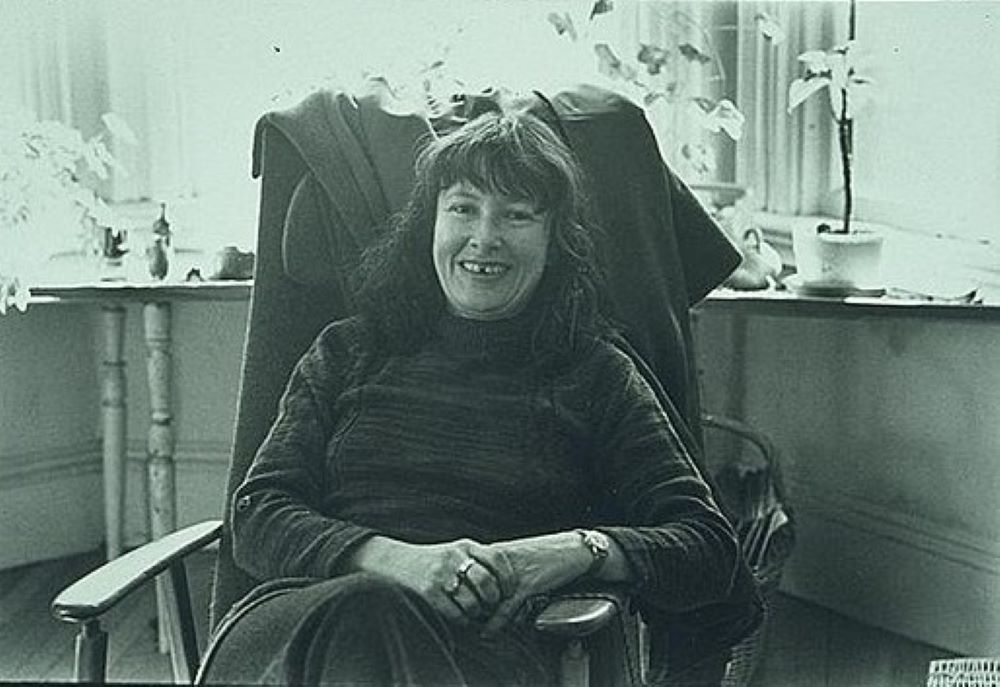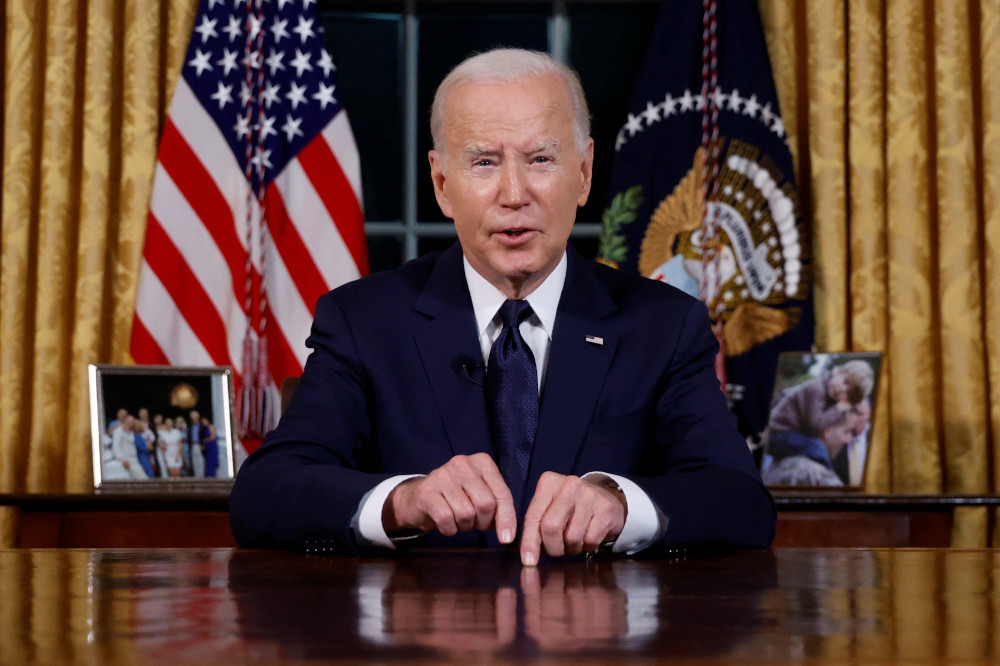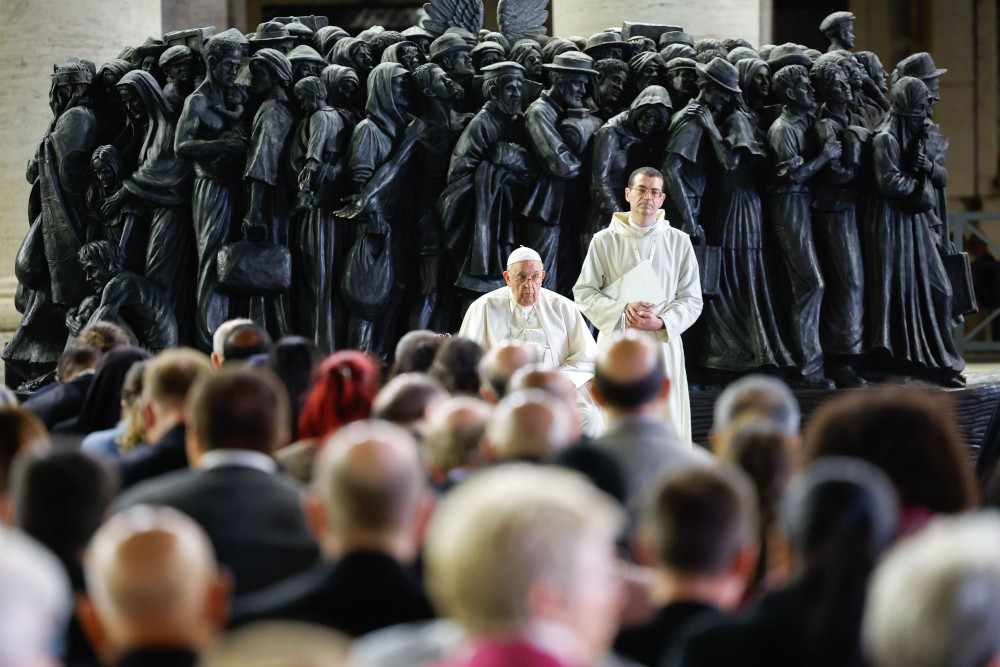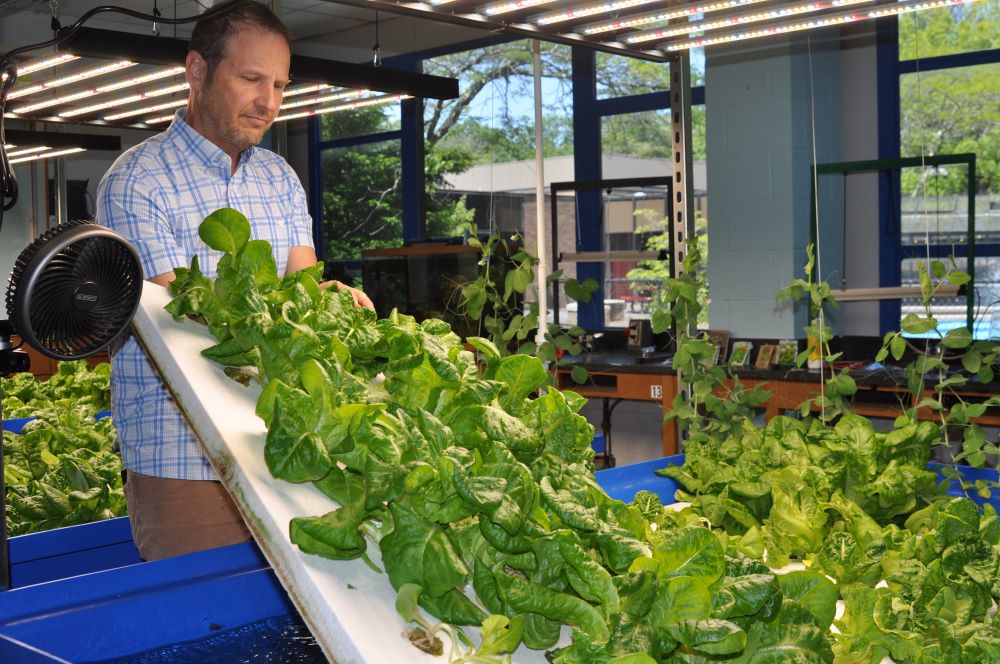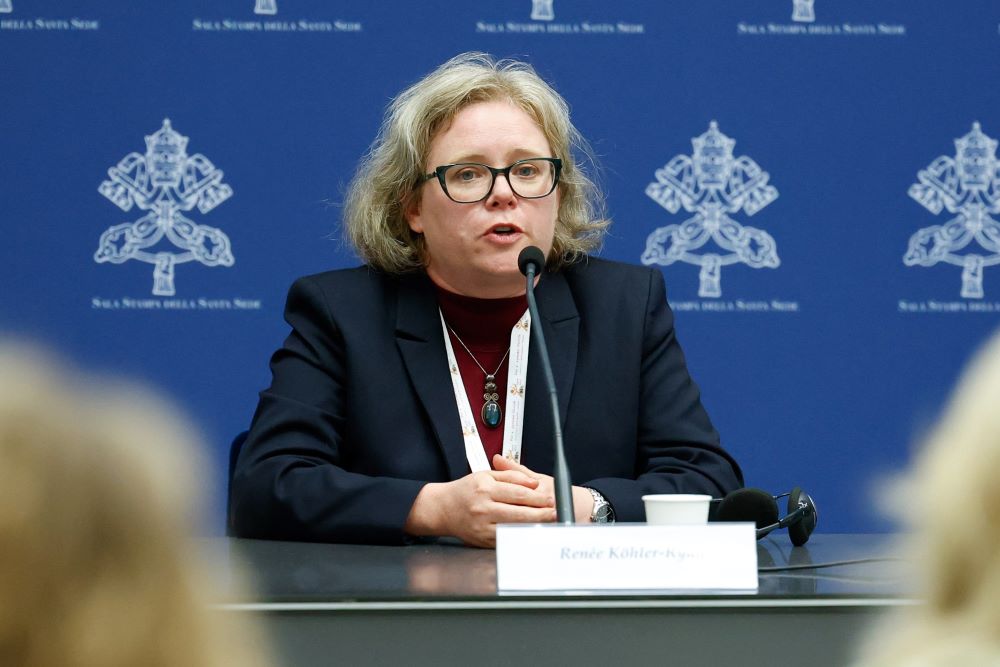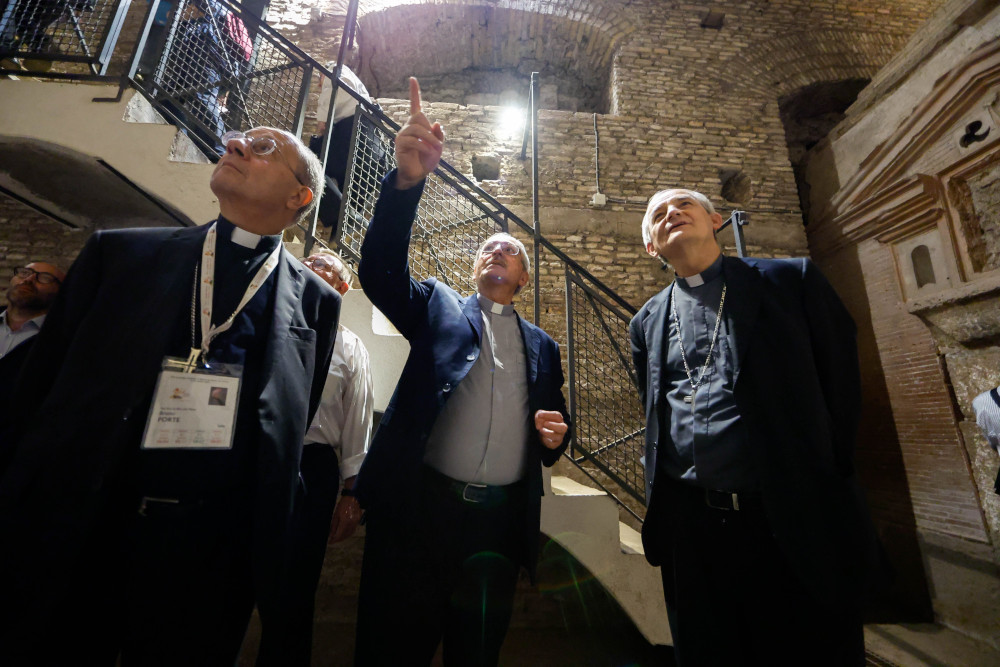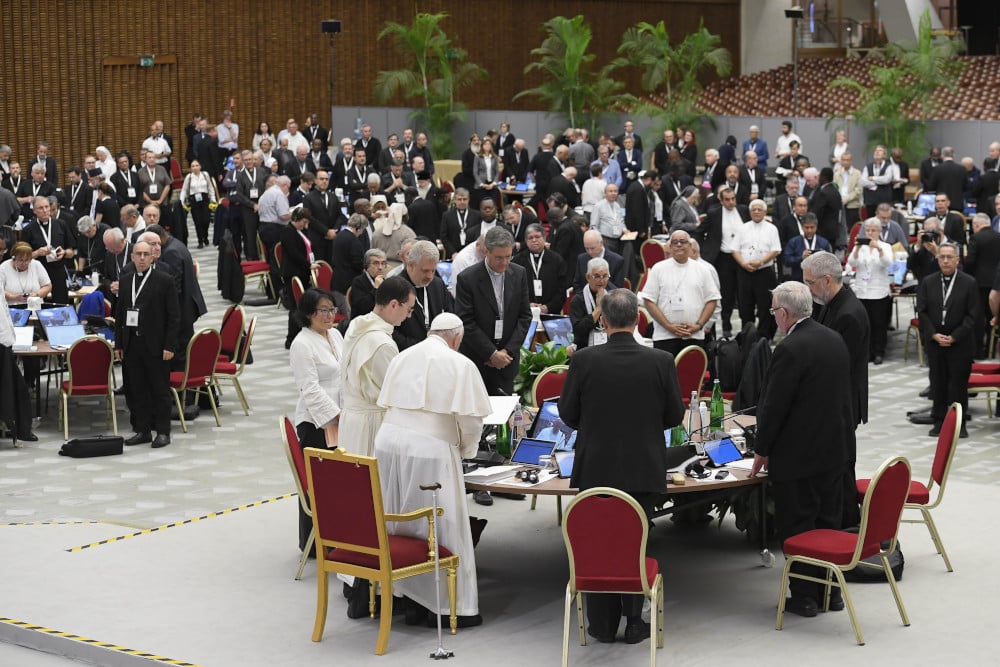
Pope Francis told members of the synod on synodality that they should respect and honor the faith of all baptized Catholics, including the women, trusting « the holy, faithful people of God » who continue to believe even when their pastors act like dictators.
« I like to think of the church as the simple and humble people who walk in the presence of the Lord — the faithful people of God, » he told participants at the assembly of the Synod of Bishops Oct. 25.
In a rare intervention as the assembly was nearing its conclusion, Francis told members to trust the fidelity of the people they listened to in preparation for the synod over the past two years.
« One of the characteristics of this faithful people is its infallibility — yes, it is infallible in ‘credendo,’ » in belief, as the Second Vatican Council taught, he said.
« I explain it this way: ‘When you want to know ‘what’ Holy Mother Church believes, go to the magisterium, because it is in charge of teaching it to you, but when you want to know ‘how’ the Church believes, go to the faithful people, » the pope said.
To illustrate his point, Francis shared the « story or legend » of the fifth-century Council of Ephesus when, the story goes, crowds lined the streets shouting to the bishops « Mother of God, » demanding that they declare as dogma « that truth which they already possessed as the people of God. »
« Some say that they had sticks in their hands and showed them to the bishops, » the pope added. « I do not know if it is history or legend, but the image is valid. »
« The faithful people, the holy faithful people of God » have a soul, a conscience and a way of seeing reality, he said.
All of the cardinals and bishops at the synod, he said, come from that people and have received the faith from them — usually from their mothers and grandmothers.
« And here I would like to emphasize that, among God’s holy and faithful people, faith is transmitted in dialect, and generally in a feminine dialect, » he said.
« This is not only because the Church is mother and it is precisely women who best reflect her, » he said, but also because « it is women who know how to hope, know how to discover the resources of the church and of the faithful people, who take risks beyond the limit, perhaps with fear but courageously. »
It was the women disciples, after all, who at dawn « approach a tomb with the intuition — not yet hope — that there may be some life, » he said.
« When ministers overstep in their service and mistreat the people of God, they disfigure the face of the church with chauvanistic and dictatorial attitudes, » the pope said.
He reminded synod members of a speech at the assembly by Sr. Liliana Franco Echeverri, a member of the Company of Mary and president of the Confederation of Latin American and Caribbean Religious, who spoke about the ongoing service, commitment and fidelity of Catholic women despite often facing exclusion, rejection and mistreatment.
« Clericalism is a whip, it is a scourge, it is a form of worldliness that defiles and damages the face of the Lord’s bride, » the church, the pope said. « It enslaves God’s holy and faithful people. »
Francis described as « a scandal » the scene of young priests going in to ecclesiastical tailor shops in Rome « trying on cassocks and hats or albs with lace. »
Nevertheless, he said, « the people of God, the holy faithful people of God, go forward with patience and humility enduring the scorn, mistreatment and marginalization on the part of institutionalized clericalism. »
